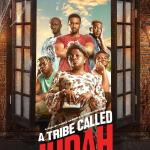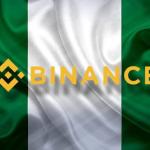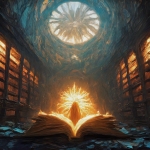Why Reading Matters
The writer, a professor in Covenant University's Department of Languages, reflects on the role books and reading play in human development, both on an individual and societal scale.
Students checking out books from a ZODML BookCorner
Knowledge is indispensable to humans, as it is essential for mental growth. Every human being is born with the ability to learn (that is, to acquire knowledge). Three broad types of knowledge can be identified: a) knowledge derived from observing objects and events taking place in one’s environment; b) knowledge derived through education, which is mainly carried out through instruction in formal settings such as the classroom; and c) knowledge derived through reading, both within and outside the classroom setting. This last type - reading - brings to mind books and other reading materials.
Books are the principal and the most profitable sources of learning. There is no subject or issue on earth on which books have not been written and published. Books have existed in various forms since ancient times, demonstrating their value to humanity. Basic education consists of being able to read and write, and one has to go to school or a school-like setting to gain this knowledge. And gaining this knowledge involves books. One who can’t read or write is said to be illiterate, a state which is sometimes accompanied by ignorance and poverty in material terms. According to Benjamin Franklin, “the only thing more expensive than education is ignorance”. The ignorant can only think of the mundane, and they can’t follow discussions of the fundamental issues of life. Mental development can therefore be difficult for them. Knowledge gained from books enhances one’s prospects in life. The higher one’s educational qualifications, the better one’s options in life; someone with a master’s degree is bound to be rated higher than the person with only a bachelor’s. Similarly, someone with quality professional qualifications will be rated higher than another person with lower qualifications. These qualifications are obtained through knowledge gained from books. Even the ignorant realize this. This is why a university student or lecturer is usually described as someone who has read many books. There was a professor in a Nigerian university who was once visited at his office by some illiterate people from his hometown. At one point during the visit, one of the visitors looked round the room at the rows of books on the bookshelves, and then at the professor, and said, “Hmm, is there a book you have not read?” Note that he didn’t say, “Is there a book in your area of specialization that you have not read?” Of course, he wouldn’t have known anything about areas of specialization in the academia, having never gone to school himself. The professor took advantage of the visitor’s ignorance by nodding his head indulgently and answering, “No.” He knew that he was lying, but he also knew that none of his visitors would ever know that he was being insincere; for there was no way he could have read all the books published on all the disciplines and issues on earth, or over the centuries, for that matter. He must also have known that, if any of his visitors had been literate, he wouldn’t have been able to get away with such a blatant falsehood. In addition, reading books also helps us to think, to formulate concepts, and resolve perplexing problems. For example, many great inventors that we celebrate today got their ideas from work done by others before them. These ideas were obtained from books or from papers containing a record of what others before them had done. Isaac Newton puts it thus: “If I have been able to see further, it was only because I stood on the shoulders of giants”. We also know that there is power in ideas, for they help to shape the world in which we live. Ideas can build empires and civilizations, and also bring them down. Ideas are a weapon against oppressive regimes. In the words of Wole Soyinka, “Books and all forms of writing are terror to those who wish to suppress the truth.” Books will continue to thrive for as long as people need knowledge, especially for self-development and the improvement of the world around them. In the words of Sharon Lee, “The moment you say ‘I know everything’ is the end of your growth.” Or in Henry Ford’s view, “Anyone who stops learning is old, whether at 20 or 80. Anyone who keeps learning stays young. The greatest thing in life is to keep your mind young.” This means that learning, through books, keeps us physically and mentally agile. So, let’s keep reading. [Tweet "“The moment you say ‘I know everything’ is the end of your growth.” #education #learning"]






